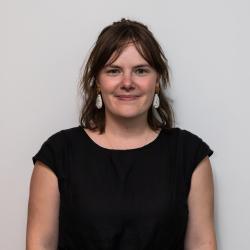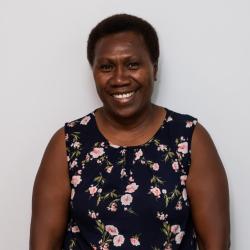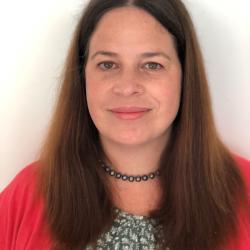As part of UN Women’s gender equality accelerator, the Women’s Resilience to Disasters programme supported the development of a framework and tools to measure women’s leadership. We spoke to researcher and Humanitarian Advisory Group Regional Associate for the Pacific, Linda Kenni about how women already contribute to disaster risk reduction in Vanuatu and why women’s empowerment and leadership are key to achieving better outcomes for all.
Disaster resilience in the ni-Vanuatu archipelago
Vanuatu is recognised as one of the world’s most vulnerable countries to the impacts of climate change and natural hazards, frequently topping the World Risk Index list of countries facing disaster risk. With 83 islands scattered across a 900km-long stretch of the South Pacific Ocean, it is prone to cyclones, earthquakes, tsunamis, extreme rainfall, and volcanic activity. As climate change progresses, residents of Vanuatu are on the frontline of rising sea levels, which is threatening livelihoods and food security, and forcing climate-induced displacement and migration. Recent research by UN Women and UNICEF suggests that women and children are disproportionately affected by climate change and disaster impacts.
In this context, Linda Kenni highlighted that successful disaster and climate risk reduction requires representation of a wide range of people, groups and communities, as well as connecting from community level right through to national level. ‘Every group that is set up in communities – such as disaster response or DRR committees - they must have a good representation of women. We need to continue to ensure that the voices of local women are heard in national meetings,’ Linda Kenni said.
Recognising women as agents of change
Women play key roles in preparing for, and responding to disasters - often as first responders. But winning recognition and support for these roles has been a longer road than many would have hoped.
Linda Kenni highlighted three key ways that women’s leadership and their meaningful participation in disaster risk prevention, preparedness, and resilience building helps support better outcomes across all of society.
Firstly, ensuring women in communities are shared risk information for disaster planning, engaged in disaster and climate risk reduction conversations, and are supported to take action. As Linda Kenni explained, ‘when a woman passes on information other women feel empowered and they share this information back to the community. They make sure the whole community knows about that information as well.’ These networks can be especially important in communities where traditional customs may limit spaces of engagement between men and women.
Secondly, women in leadership roles can amplify the voices of other women, advocating for their ideas and helping to ensure that policies and responses are not gendered in a way that disadvantages women. More diverse leadership reflects the range of lived experiences among the communities and groups most impacted by disasters. This is important given the obstacles that women have faced in having their perspectives recognised on a strategic or nation-wide level. UN Women adviser noted:
"Women are key agents of change with unique knowledge, skills, resources, and experience that should be harnessed to design, lead, and implement innovative and transformative solutions to reducing disaster and climate risks and building more resilient communities – leaving no one behind."
Thirdly, at an implementation level, women bring professional skills and attributes that make sure no one is left behind in the response. ‘Previously we had only men going down to disaster areas, but more and more men are recognising that women are very important – they have experience and they are good at identifying gaps – and we also see that women in the community are more comfortable talking to other women,’ Linda Kenni indicated. She has observed how women’s participation means groups such as people with disabilities or older people are recognised and included, and how women have pushed for equality of access to support when disaster strikes.
Keeping up the pressure
Despite the increase in women’s leadership and engagement, there are still obstacles preventing their full benefits from being felt. Some of these obstacles are practical. More funding for women’s organisations is needed to support their outreach activities and increase capacities in disaster risk reduction. Reaching women across the archipelago is difficult, though the government is working hard trying to set up committees in communities where these have been missing.
Others relate to attitudes. While many men have embraced the need for more diverse representation, women still lack proportional access to high-level decision-making spaces. It is not always clear that women’s views and experiences carry weight when decisions are being made. And as Linda Kenni explained, women need to keep supporting each other to move into more decision-making roles: ‘Even if we have only one or two men in the room we will always choose them, and one of the things influencing that is the respect that we still have towards men. It’s time that women need to trust each other and do away with our politics, to support each other.’
Signs of change
Linda Kenni believes there is now strong momentum behind this shift. Encouraged by the gender equality ambition of the Sustainable Development Goals and capitalising on some partnerships with international non-governmental organisations (NGOs) in Vanuatu, the country now has a demonstrated track record of ‘women who took on those roles, who are equipped with that knowledge and information, and who made a big difference at community level.’
In the Pacific, women are increasingly being recognised as vital to the leadership and implementation of disaster and climate risk reduction and resilience and the evidence base is growing. For example, research by Care International in Vanuatu, showed that building women’s leadership in disaster preparedness and response, increased the resilience of at-risk communities and schools during and after Tropical cyclone Pam.
Learning from women’s experiences of disasters is also influencing preparedness strategies. For example, the Women I Tok Tok Tugeta initiative, set up after 2016’s Tropical Cyclone Pam, supports forums for women to discuss ideas and build resilience. Listening to women’s experiences following Tropical Cyclone Harold in 2020 has contributed to the expansion of backyard gardens, which ensure access to fresh food when supply is disrupted. Encouraging women’s representation in resilience building activities has also had wider benefits, as Linda Kenni noted: ‘Women are also involved in church activities, community activities, and that’s the beauty of training women and empowering women with that information, it gives them confidence.’
The growing evidence base is clearly showing that women’s involvement in disaster prevention, preparedness, response, and resilience not only improves outcomes for women and girls, but also for other groups whose needs may risk being overlooked, and for communities in general. By developing ways to measure women’s leadership and meaningful participation in disaster and climate risk reduction and resilience, UN Women and the Humanitarian Advisory Group aim to help drive change towards gender-responsive and more effective resilience decision making and action in Vanuatu and beyond.
About the authors
Linda Kenni is a researcher based in Port Vila, Vanuatu, with over 10-years’ experience working with organisations, focusing on gender inclusion and localisation of humanitarian response. Linda’s recent work includes being engaged in evaluating Australia’s whole-of-government response to Cyclone Pam for the Office of Development Effectiveness, DFAT; measuring localisation of humanitarian response in Vanuatu, Humanitarian Advisory Group; and examining local responses during a pandemic, Australian Red Cross.
Pip Henty is a humanitarian practitioner who focuses on positively enhancing the effectiveness, efficiency and appropriateness of humanitarian action, with a focus on diversity, inclusion, equity and equality. Over the past nine years, Pip has worked in operational and technical roles in the not-for-profit and private sectors, including in the areas of international development and humanitarian action. Pip has worked across the Asia and Pacific regions, including in Fiji, Vanuatu, Tonga, Indonesia and Thailand. Pip is a Leader at Humanitarian Advisory Group.
Sarah Selby is an international development practitioner with expertise in disaster risk reduction, climate change adaptation, risk informed development, gender equality and women’s empowerment. She is a technical specialist in disaster and climate resilience with UN Women and has over twenty years of experience. She holds a post graduate degree from the University of Cambridge.


